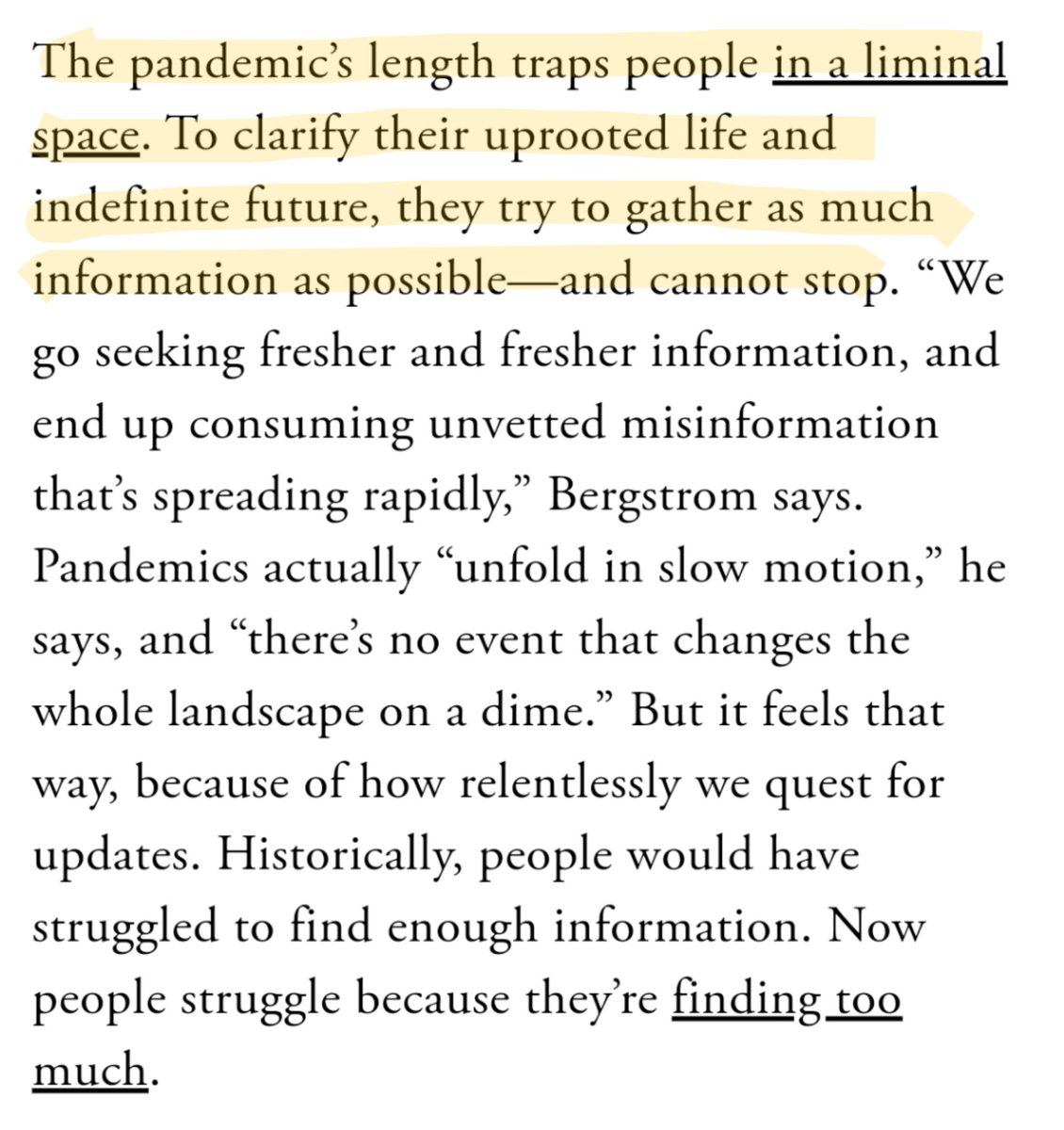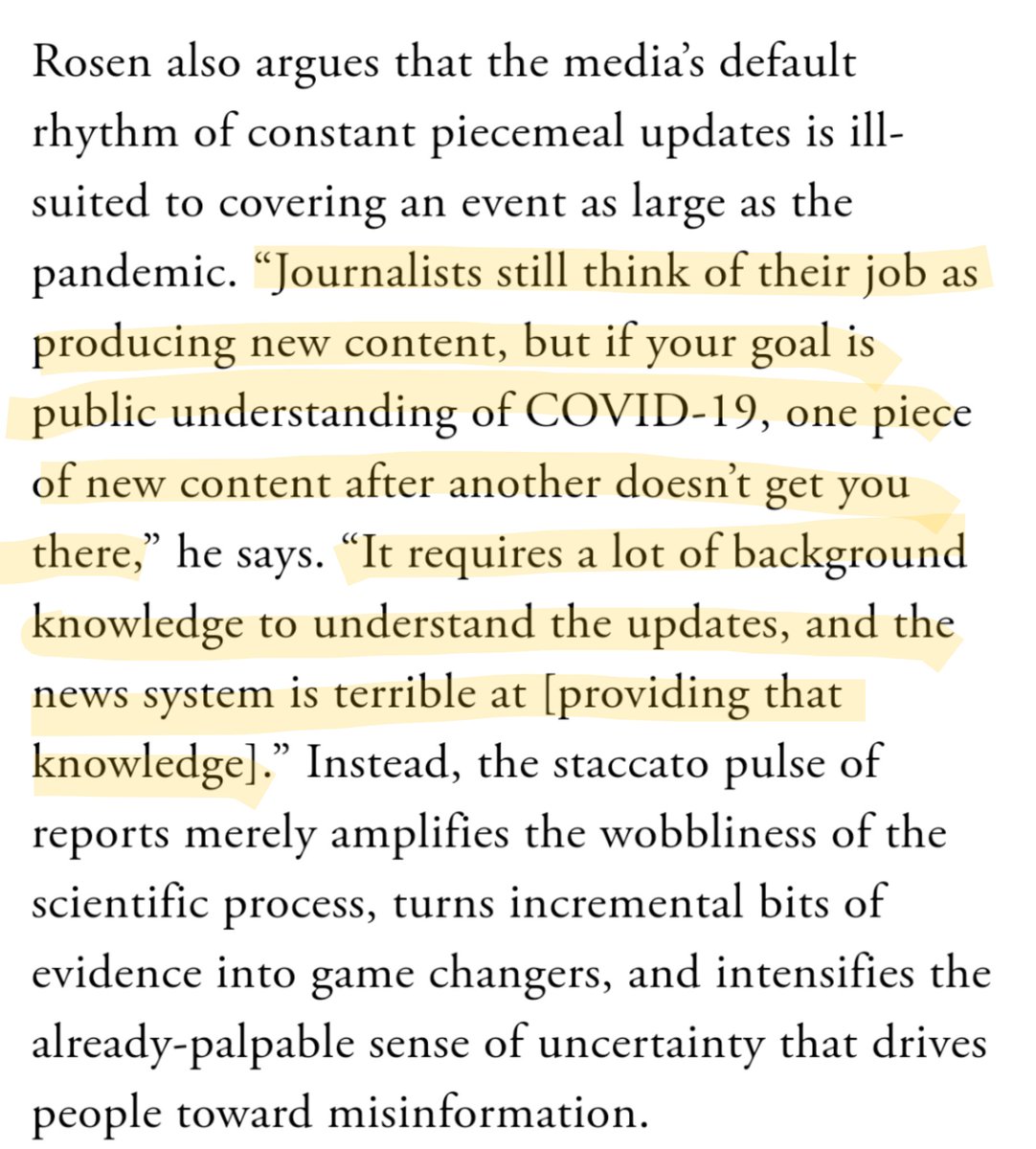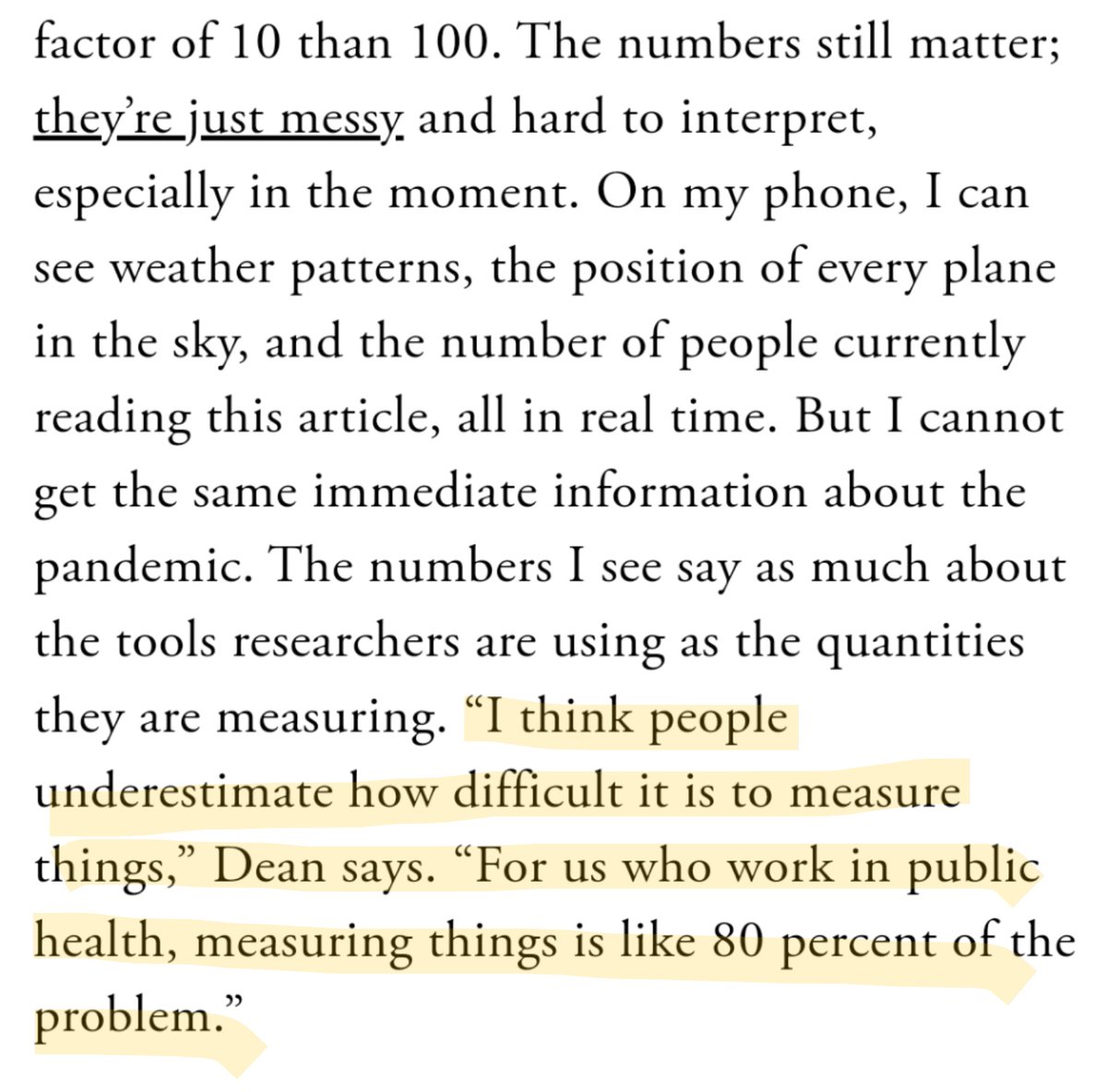
This is how science actually works. It’s less the parade of decisive blockbuster discoveries that the press often portrays, and more a slow, erratic stumble toward ever less uncertainty. Our understanding oscillates at first, but converges on an answer. 1/ theatlantic.com/health/archive… 

There’s a lot of expertise around, but fewer tools than ever to distinguish it from everything else. Pure credentialism doesn’t always work. People have self-published terrible pieces on Medium, but some of the best early explanations for laypeople were from tech guys. @zeynep 2/ 

The issue is that modern expertise tends to be deep, but narrow. But pandemics demand both depth and breadth of expertise. No one knows it all, and those who claim to should not be trusted. @edyong209 3/ 

The pandemic's length traps people in a liminal space. To clarify their uprooted life & indefinite future, they try to gather as much information as possible-and can't stop
Pandemics actually unfold in slow motion & there's no event that changes the whole landscape on a dime 4/
Pandemics actually unfold in slow motion & there's no event that changes the whole landscape on a dime 4/

“Journalists still think of their job as producing new content, but if your goal is public understanding of COVID-19, one piece of new content after another doesn't get you there. It requires a lot of background knowledge to understand the updates" @jayrosen_nyu 5/ 

Case counts don't show how many people have been infected on any given day. They reflect insufficient testing, reporting lags, and false negatives. 6/ 

"I think people underestimate how difficult it is to measure things. For us who work in public health, measuring things is like 80 percent of the problem." @nataliexdean 7/ 

• • •
Missing some Tweet in this thread? You can try to
force a refresh









